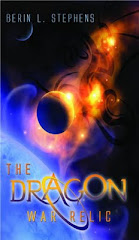The highlight for me at the Storymaker's conference was the two-hour workshop I attended with Dave Wolverton/Farland called "Writing for the Masses". I was going to put up a summary of my notes, but someone else beat me to it and did it better than I would have. You can find it here: http://tpmills.wordpress.com/2010/04/30/david-wolvertons-workshop-at-lds-storymaker/
I came out of that workshop thinking, "Crap, now I need to go back and re-write my latest book." I'm going to have to at least go back through it and see if I can improve its "mass appeal". Now, my initial thought was that I really didn't care if I wrote for the masses, I just wanted to tell my stories my way. Wolverton pointed out that that was fine, I just won't sell a lot that way. Things that sell follow the formulas that have been successful. People who strike out on their own paths rarely hit, if ever, the NY Times bestseller list.
It reminds me of the conflict between musicians: the artists versus the pop musicians. Many of us who are jazz saxophonists have a strong dislike for the music of Kenny G. Why? Well, its formulaic, repetitive, and sappy. It also makes lots of money. Those of us working in the trenches, practicing our butts off, can't even get paid for a lot of our gigs, so naturally, there's a little jealousy there. Does that make Kenny G wrong for making money doing what he enjoys? No. But it sure would be nice if more people appreciated some good ol' hard swingin' jazz.
Anyway, that's a decision we need to also face as writers. Do we want to adopt the predictable formulas? Many literary types consider popular styles of writing to be "trash". Do we want to write trash? Wolverton brought this up and said we can write "trash", but let's make it "beautiful trash".
He talked about the "try-fail" pattern that is important for safely increasing the stress the reader feels. I've always felt the try-fail pattern made things too predictable, so I've sought to disguise it. I wonder now if I've disguised it too much.
He didn't explain the try-fail pattern, but in a nutshell, it is where the protagonist makes at least three attempts to solve their problem. Each time, they fail and get thrown into a worse situation. Then, the last time, it looks inevitable that the villain will win and take over the universe, but our hero somehow pulls off the miraculous victory.
Throughout this process, Wolverton pointed out, the reader's stress levels keep increasing. To compensate for this, our body releases endorphins which are related to morphine. The higher the stress for the character, the higher the stress for the reader. Finally, when the hero conquers all, the reader gets this great rush that can drop them below their normal stress levels, thus causing a greater relaxation. It's cheaper than a plane ticket to the Bahamas.
The bottom line, no matter what form of art we pursue, it needs to create an emotional response in the audience. If it doesn't, it will be boring. I remember reading a negative review for the movie Charlie, where the reviewer said the movie "manipulated the audience's emotions". I wanted to say to them, "Excuse me, but all movies seek to do that. The ones that don't are major flops." I've also taught my music students this principle. A musical piece that doesn't grab the listener's attention will quickly put them to sleep.
Reminds me of a joke: What do you get when you play New Age music backwards?
A: New Age music.

4 comments:
Good thoughts. I wondered, myself, about the manuscript I've just completed...but, no, I'm not going to rewrite it all over again (unless an agent or editor asks me to). However, I do plan on keeping his suggestions in mind as I begin my next project.
And thanks for the link!
I like hard swingin' jazz ...
Excellent post.
Great post and I loved Dave's class as well. He provided so much great insight. Good luck with your writing!
Good notes Berin. I didn't officially meet you, but I think I saw you there. I missed part of Dave's so was glad that you posted this.
Post a Comment